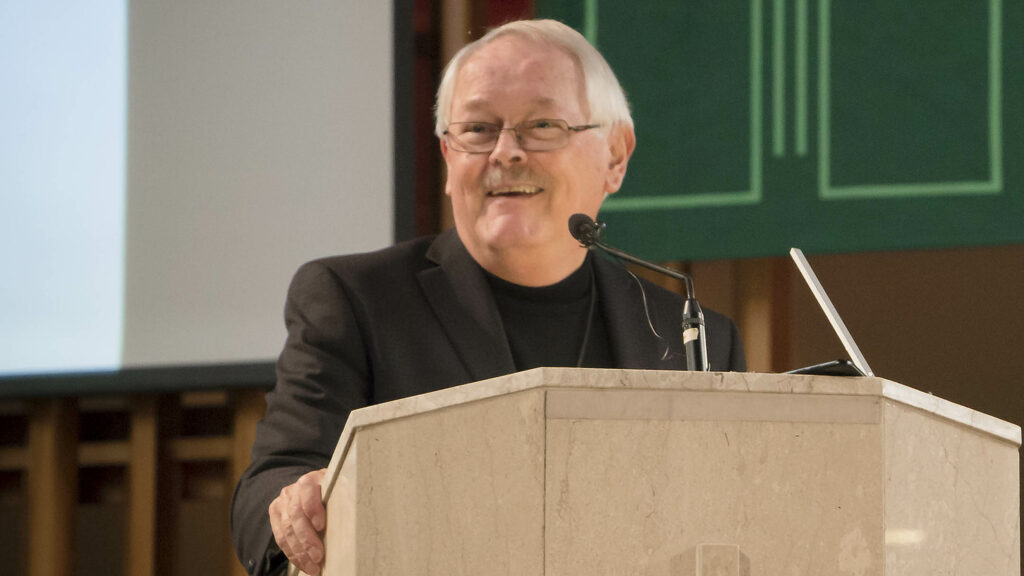You are as sick as your sickest secret! That’s a wise axiom. What’s sick in us will remain sick unless we open it up to others and to the light of day. As long as it’s a secret, it’s a sickness. However, perhaps the problem is not with what we keep secret, but that we keep it secret. Maybe the sickness is the secret rather than what we deem to be sick.
We all have our struggles, and we can thank God for that. The image and likeness of God inside us is not simply a beautiful icon imprinted in our souls. It’s fire, divine, insatiable, befuddling fire. By our very nature, there are complexities inside us that cannot make easy peace with the person we like to think we are.
We all have wild fantasies and dark obsessions. Were our daydreams ever made public, they would reveal that we all nurse fantasies of grandiosity, of hatred, of vindication, and that we all are periodically caught up in the grip of various emotional and sexual obsessions. There are things in our daydreams about which we would be ashamed to speak. We all harbor fantasizes that are wild, earthy, grandiose, and egotistical. So we keep them secret and deal with them either by pathologizing them (relegating them to a sickness) or by denying them.
We relegate our fantasies to a sickness when we believe they are something we alone suffer from, something sick, shameful, and unique to us. They are something we never want others to know about us. As a result, our fantasies and obsessions become something to be ashamed of, a dark secret, a sickness beneath our normal self.
Another option is denial. We can consciously deny that we ever have these thoughts and feelings. Denial saves us from feeling shame, but we pay another price for this in the end. Denying our thoughts and feeling is akin to living on the ground floor of a house and taking any garbage or anything else we do not want to deal with and simply tossing it down into the basement and closing the door. Out of sight, out of mind. For a while. Garbage doesn’t cease to exist just because we have pushed it into the basement. Eventually it ferments and sends its poisonous gases up through the vents to contaminate the air we are breathing.
However, and this is the point, the complex yearnings, obsessions, and grandiosity inside our soul are not a sickness, nor something that we need to deny. Our soul, for all its wildness, is not sick. The problem is that we lack an understanding of the deeper part of our soul, our shadow, and believe there’s some sickness inside there – and it’s keeping this a secret that’s the actual sickness.
What is our shadow? Popular literature has given us a one-sided notion of what makes for our shadow. The popular notion is that our shadow is some dark, fearful place we are afraid to go, an inner desert we want at all cost not to venture into, inner demons that we want consciously to avoid. While we might at times feel those fears in the face of our own shadow, our shadow is not a dark thing at all. The opposite.
Here’s how our shadow forms:
When a baby is born, it is luminous, wonderfully open and aware, looking around, simply drinking in reality. However, at this stage of life, a baby cannot think because it lacks an ego and thus lacks self-awareness. In order to form an ego and become self-aware, the baby has to make a series of massive mental contractions, each of which shuts it off from part of its own luminosity.
First, early on in life, it distinguishes between what is self and what is other; I am not my mommy.
Soon afterwards, it distinguishes between living and non-living; a puppy is alive, a stone is not.
Sometime after that, it distinguishes between mind and body; a body is a hard, solid thing, thinking is different.
Finally, and this is the critical piece in the formation of our shadow, at a point in its life, the baby will make a distinction between what it can consciously face inside of itself and what is too overwhelming to consciously face. In doing that, it forms its shadow by splitting off a huge part of its luminosity (the full image and likeness of God inside itself) from its own conscious awareness.
Notice that our shadow is made up of our light, not our darkness. As Marianne Williamson aptly puts it (in a phrase Nelson Mandela used in his inauguration address) it is our light not our darkness that frightens us.
In a healthy person, dark secrets generally hide the things that emanate out of the excessive light, divine energy, infinite longings, and godly grandiosity inside of us. When we bring these into the light, we see that they are neither dark nor sick. The sickness lies only in not bringing them to light.

